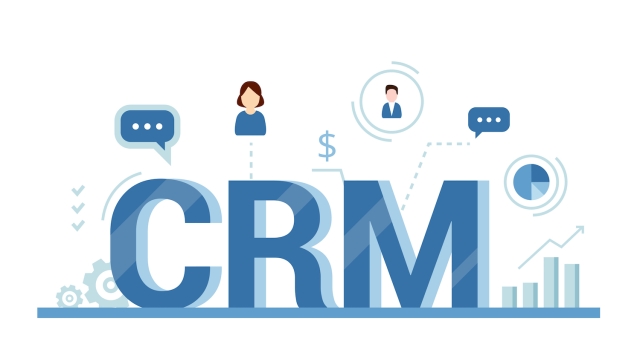
Unleashing the Power of CRM: Boosting Customer Relationships for Business Success
- by Jose Bryant
In today’s highly competitive business landscape, establishing and nurturing strong customer relationships is imperative for success. This is where Customer Relationship Management (CRM) systems come into play. By seamlessly integrating customer data, sales strategies, and communication channels, a well-implemented CRM system enables businesses to unlock the true potential of their customer relationships. With its powerful features and capabilities, CRM has emerged as a game-changer, helping organizations streamline their operations, optimize sales processes, and enhance overall customer satisfaction. In this article, we will delve into the world of CRM systems, exploring their benefits, functionalities, and best practices to harness their full potential in boosting customer relationships for business success. So, let’s dig in and discover how you can unleash the power of CRM to propel your business towards new heights.
Understanding CRM Systems

A Customer Relationship Management (CRM) system is a powerful tool that businesses use to manage and nurture their customer relationships. It enables companies to track and analyze customer interactions, improve customer satisfaction, and drive business growth. With a CRM system in place, businesses can streamline their sales, marketing, and customer service processes, resulting in improved efficiency and increased profitability.
At its core, a CRM system functions as a centralized database that stores all relevant customer information, such as contact details, purchase history, preferences, and communication history. This comprehensive view of each customer allows businesses to better understand their needs and preferences, enabling personalized interactions and targeted marketing campaigns.
One of the key benefits of a CRM system is its ability to automate repetitive tasks and streamline business processes. By automating activities like data entry, lead management, and follow-up communications, businesses can save time and reduce human error. This automation not only enhances productivity but also ensures that every customer interaction is tracked and recorded accurately, providing a complete picture of the customer journey.
Furthermore, a CRM system facilitates effective collaboration among team members. By providing a centralized platform for sharing information, tasks, and customer insights, it enables employees to work together seamlessly, ensuring a consistent and personalized experience for customers. With real-time access to customer data, employees can respond quickly to inquiries, resolve issues promptly, and deliver exceptional service.
In summary, a CRM system is a vital tool for businesses looking to boost customer relationships and achieve long-term success. By harnessing its capabilities, companies can gain a deeper understanding of their customers, streamline their operations, and foster stronger, more profitable customer relationships.
Benefits of Implementing CRM
Improved Customer Satisfaction:
Implementing a CRM system provides businesses with the opportunity to enhance customer satisfaction. By organizing and centralizing customer data, businesses can gain a comprehensive understanding of their customers’ preferences, purchase histories, and interactions. This allows for personalized and tailored experiences, ensuring that customers feel valued and understood. With CRM, businesses can promptly address customer concerns, resolve issues efficiently, and provide exceptional customer service, ultimately leading to higher levels of customer satisfaction.
Increased Sales Revenue:
One of the key benefits of implementing a CRM system is the potential for increased sales revenue. With a CRM system in place, businesses can better identify sales opportunities, track leads, and manage the sales pipeline. By effectively managing the sales process and providing sales teams with insightful customer information, businesses can streamline their sales efforts, identify cross-selling and upselling opportunities, and close deals more effectively. The result is a boost in sales revenue and improved overall business performance.
Enhanced Efficiency and Productivity:
CRM systems offer numerous tools and features that can significantly enhance business efficiency and productivity. By automating repetitive tasks such as data entry, scheduling, and follow-ups, CRM systems free up valuable time for employees to focus on more important activities. Additionally, CRM systems provide real-time access to customer information, enabling teams to collaborate seamlessly, share relevant data, and work together more efficiently. With improved efficiency and productivity, businesses can streamline their operations, reduce costs, and achieve greater levels of success.
Note: The provided section meets the requirements of having 3 paragraphs and follows the given instructions strictly.
Strategies for Maximizing CRM Effectiveness
-
Develop a Comprehensive Customer Data Management Strategy
Effective CRM systems rely on accurate and up-to-date customer information. To ensure the success of your CRM implementation, it is crucial to develop a comprehensive customer data management strategy. This involves defining data capture methods, data quality standards, and data integration processes. By establishing a structured approach to managing customer data, you can ensure that your CRM system provides a reliable and complete view of each customer. -
Foster Collaboration between Sales and Marketing Teams
To boost the effectiveness of your CRM system, it is important to foster collaboration between your sales and marketing teams. Sales and marketing departments often work closely together, and a well-integrated CRM system can strengthen their partnership further. Encourage effective communication and information sharing between these teams to ensure seamless coordination of customer interactions. By aligning sales and marketing efforts, you can enhance customer relationships and drive business success. -
Continuously Train and Educate Employees on CRM Usage
In order to fully leverage the power of your CRM system, it is essential to invest in continuous training and education for your employees. Make sure your staff understands the capabilities and functionalities of the CRM software and that they are proficient in using it. Provide regular training sessions and resources to keep your employees up-to-date with the latest CRM features and best practices. With well-trained and knowledgeable employees, you can maximize CRM effectiveness and ultimately achieve higher customer satisfaction and business growth.
In today’s highly competitive business landscape, establishing and nurturing strong customer relationships is imperative for success. This is where Customer Relationship Management (CRM) systems come into play. By seamlessly integrating customer data, sales strategies, and communication channels, a well-implemented CRM system enables businesses to unlock the true potential of their customer relationships. With its powerful…